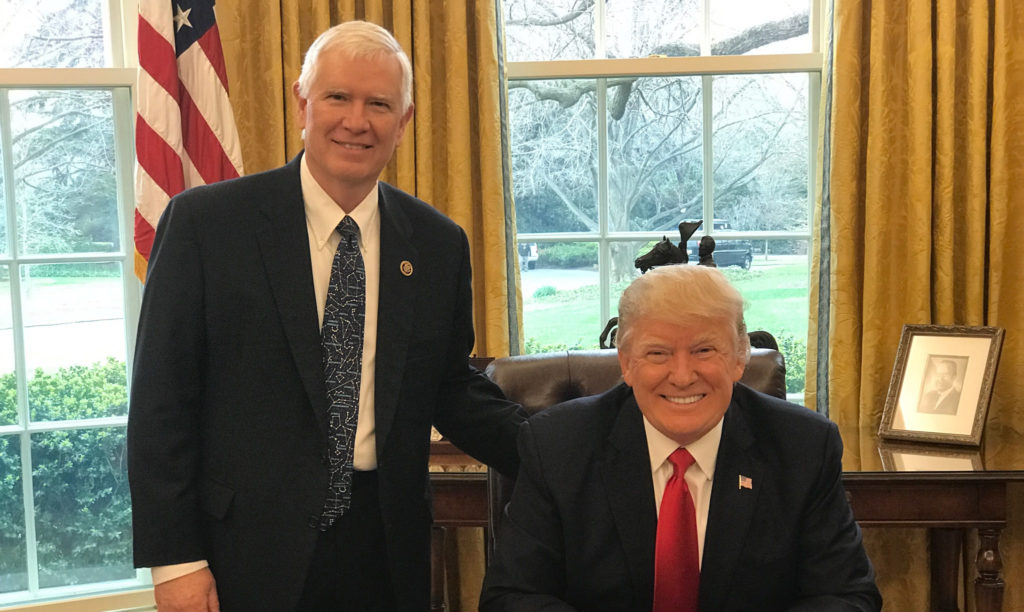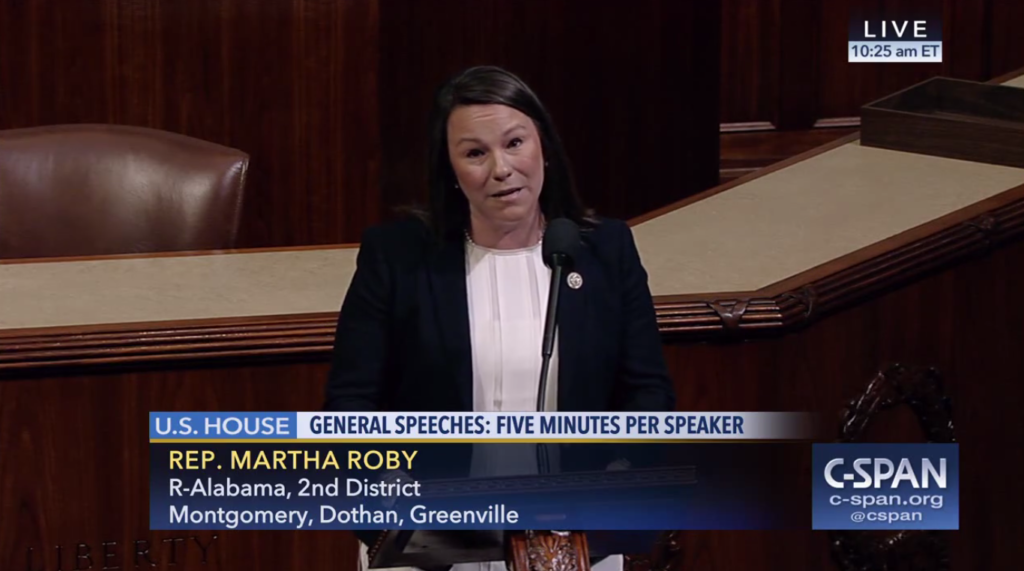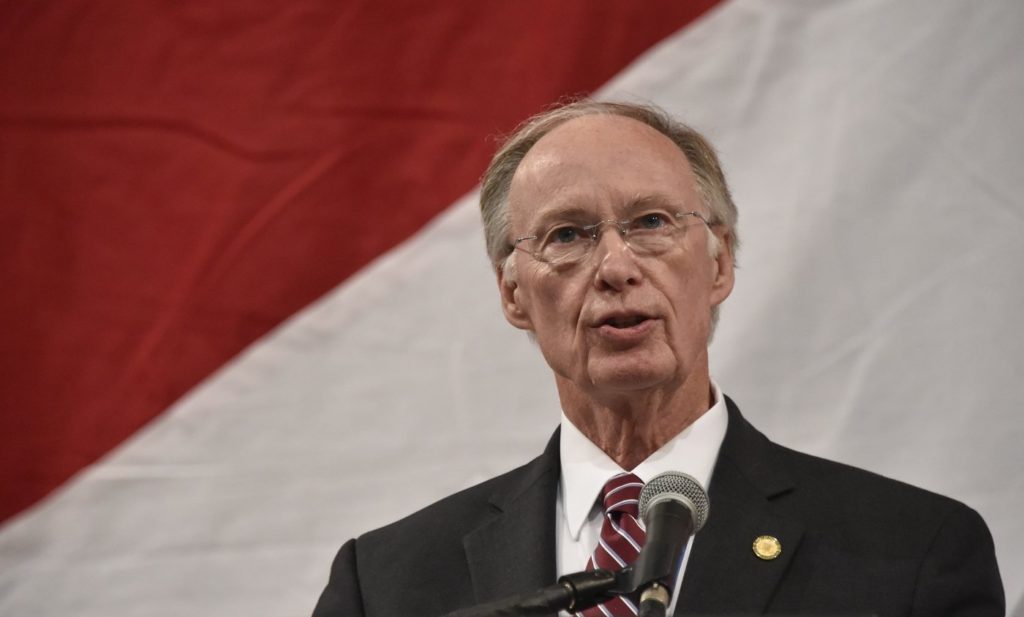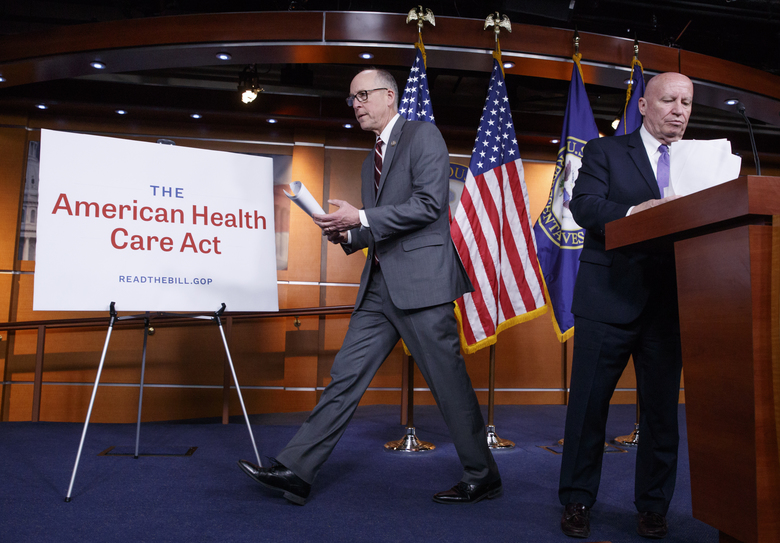Daniel Sutter: Just what the doctor ordered

The U.S. House of Representatives recently passed the American Health Care Act (AHCA), an expansive bill which Republicans claim delivers on their promise to repeal and replace the Affordable Care Act. The AHCA proposes changes to Medicaid that should control costs, and could even improve the quality of care for low income Americans. Medicaid is the joint state and Federal program providing health insurance for the poor and disabled. States operate the programs, with rules and over half of the funding provided by Washington. Since Medicaid’s founding in 1965, matching grants have doled out Federal dollars, with states receiving from $1 to $3 for each dollar spent (low income states get a better match). Beginning in 2020 under the AHCA, states would receive a fixed dollar amount per beneficiary, for each of five beneficiary categories. Alternatively, states could elect to receive a block grant, meaning a fixed dollar amount not dependent on the number of enrollees. Medicaid’s match has been open-ended, so that spending more on approved coverage brings in more Federal dollars. High income states have obtained more Federal dollars through generous optional coverage. But this means that for any total of Federal spending, fewer dollars are available to help poor states, compromising the quality of care. Matching grants have also produced billions of dollars of spending on services that Americans do not think are worthwhile. This last point requires some explanation. People obviously do not agree on how much we should spend on Medicaid (or any program). Labeling spending “wasteful” often simply disguises personal opinion. I think that some Medicaid spending can be more validly called wasteful. Suppose that a state considers spending $100 million on Medicaid. Given Alabama’s matching rate, our state legislators would need to appropriate about $35 million to cover $100 million of services. Is this spending worthwhile? Most Alabamians are not on Medicaid, so if we think solely in terms of personal benefit, most of us would say no. But Americans give almost $400 billion annually to charity, and so clearly consider the well-being of others. We would need to think about how much we value providing medical care for those who can’t afford it. The thinking resembles deliberating about individually donating $100 to a charity; if we give the money, we effectively say that helping others is worth at least $100. For the Medicaid example, Alabamians should consider exactly what procedures and persons will be covered, and whether we can afford the taxes. Let’s say we do this and come up with a value. If the value is at least $100 million, the spending is worthwhile. Unfortunately, Medicaid’s matching grants encourage Alabamians to only worry if the services are worth the $35 million we must spend. Yes, we pay a share of Federal taxes, but separately from decisions about Medicaid. So we might approve spending which we believe yields only $50 million in value. Spending $100 million to produce $50 million in value, I think, counts as waste. Block grants make states pay the full cost of extra spending. Consequently, Alabama and other states should only spend $100 million on Medicaid when the perceived value is at least $100 million. The Congressional Budget Office estimates that the ACHA will reduce Medicaid spending by $880 billion over a decade. Would this eviscerate Medicaid? Spending today exceeds $500 billion annually, and is projected to rise, so we will still be spending roughly half a trillion dollars a year. More importantly, the cuts should target coverage that Americans judge to not be worth the cost. No state would be compelled to cut coverage for any person currently on Medicaid. The first lesson of economics is that incentives matter. Medicaid’s open-ended matching grants create bad incentives under which states waste our tax dollars. The AHCA is a broad bill, and some elements may do more harm than good. But ending Medicaid matching grants would be a prescription for improvement. ••• Daniel Sutter is the Charles G. Koch Professor of Economics with the Manuel H. Johnson Center for Political Economy at Troy University and host of Econversations on TrojanVision. The opinions expressed in this column are the author’s and do not necessarily reflect the views of Troy University.
Alabama sees America’s highest premium spike under Obamacare

A new report from the Department of Health and Human Services (HHS) details the premium changes Americans across the country have experienced under former President Barack Obama‘s signature legislation, Affordable Care Act, better known as Obamacare. According to the report, which uses the data the Obama administration relied on, “average exchange premiums were 105 percent higher in the 39 states using Healthcare.gov in 2017 than average individual market premiums in 2013.” “Premiums for individual market coverage have increased significantly since the Affordable Care Act’s key provisions have taken effect,” the new report reads. The report also found the State of Alabama saw the nation’s highest premium increase since the implementation of Obamacare with an average 223 percent increase between 2013 and 2017 due to the new regulations. That’s more than double the national average. Alabama 2nd District U.S. Rep. Martha Roby said the statistics show why Republicans are working to offer Americans relief from the burdensome law. “The numbers are staggering. Insurance premiums and deductibles have skyrocketed due to the regulations and mandates imposed by Obamacare,” Roby said. “Providers have been forced out of the market, and Alabama consumers now only have one option for health insurance. Problems like these are why I worked to help build support for our three-step plan to repeal and replace Obamacare.” Earlier this month the U.S. House of Representatives passed the American Health Care Act (AHCA), which is the first of a three-phase plan by Republicans in Congress and the Trump Administration to repeal and replace Obamacare and rebuild America’s health care system, based on a plan that is intended to lower premiums and other out-of-pocket costs that have come to weigh on patients.
Martha Roby: Keeping our promise

Republicans in the House of Representatives took a critical first step towards keeping our promise to repeal and replace Obamacare by passing the American Health Care Act (AHCA). While I’ve been committed to making this happen since day one, it took a lot of negotiating and hard work by President Donald Trump and Vice President Mike Pence to get it over the finish line in the House. Obamacare is crumbling all around us as premiums continue to skyrocket, deductibles continue to increase, and coverage continues to implode. As if we needed further proof that the status quo is unsustainable, Aetna recently announced they will join several health insurance providers in fully leaving the Obamacare marketplace. When more news about the failures of Obamacare comes to the forefront, it serves as a reminder that the time to give Americans relief from this disastrous law is now. I’m proud that we’ve begun the process of replacing Obamacare with a patient-centered health care system that will offer Americans more choices and lower costs. For seven years I have promised the people of Alabama’s Second District that I would repeal and replace this failed law, and I was finally able to deliver on that promise in a meaningful way with my vote in favor of the AHCA. Passing the AHCA is the first of a three-step plan by Republicans in Congress and the Trump Administration to put an end to Obamacare. Our bill dismantles the taxes in Obamacare that have harmed our nation’s job creators, increased costs for patients, and given Americans fewer options. It also eliminates both the individual and employer mandate penalties that forced millions of Americans into health care plans that they do not want and cannot afford, among many other provisions. Upon enactment of the AHCA, Health and Human Services Secretary Tom Price will begin using his authority to dismantle the Obamacare rules and regulations that drive up patient costs and force insurers out of the market. Finally, Congress will take up pieces of legislation that conservatives have advocated for over the years to further bring down costs through proposals such as allowing insurance competition across state lines and health care portability. Before AHCA came before the House earlier this month, I sat in the Oval Office with President Trump and assured him that I would help him get this legislation through. House passage of AHCA was just one step, but it was an important one, and it would not have been possible without the direct involvement of President Trump and Vice President Pence. The AHCA now awaits further action by the Senate, and I’m hopeful they will continue our progress. Americans need and deserve relief from Obamacare now and, while it will take some work, I’m confident the Senate can get this done so the president can sign this conservative solution into law. It is refreshing and encouraging to now be working with a unified Republican majority that is committed to delivering results and keeping our promises to the American people. After so many years of gridlock in Washington, Republicans in the House, the Senate, and the White House are working to get things done – together. ••• Martha Roby represents Alabama’s Second Congressional District. She lives in Montgomery, Alabama with her husband Riley and their two children.
Mo Brooks, House Freedom Caucus nonplussed over Donald Trump threats

President Donald Trump was nonplussed with members of the House Freedom Caucus after Republicans were forced to pull the American Health Care Act after realizing it didn’t have the votes to pass. In a Thursday tweet, Trump even threated to oppose the conservative Republican group with the same vigor as Democrats in 2018 if they don’t fall in line with his priorities. “The Freedom Caucus will hurt the entire Republican agenda if they don’t get on the team, & fast. We must fight them, & Dems, in 2018,” Trump wrote. Alabama U.S. Rep. Mo Brooks, a member of the ultraconservative caucus, doesn’t seem worried though. “Trump’s tweets reaffirm that the Freedom Caucus is having a major impact on public policy in Congress — that the Freedom Caucus is not a force to be ignored,” he said in an interview with The Daily Signal. “This Twitterverse is the new Washington. I have zero worries about it. If you want me to vote for a piece of legislation, either persuade me it is good for America or change it so that it is good for America.” Brooks likely doesn’t have much to worry about in 2018, either. The CD 5 Republican has been in the House of Representatives since 2011 and in his most recent election he doubled the vote count of Democratic challenger Will Boyd.
Thursday vote on GOP health care bill canceled

GOP leaders in the U.S. House of Representatives have canceled a scheduled Thursday night vote on a plan to repeal and replace President Barack Obama‘s signature health care law, a Republican aid confirmed to Alabama Today. The decision came after conservatives in the House Freedom Caucus failed to strike a deal on the bill in a meeting with President Donald Trump Thursday at the White House. North Carolina-Republican U.S. Rep. Mark Meadows, chairman of the House Freedom Caucus, told reporters while no deal had been made today, he was still hopeful one ultimately would be. “I am very hopeful we can find a way to yes,” said Meadows of a future deal. This story will be updated.
What they’re saying about the American Health Care Act: Robert Bentley

The Republican alternative to replace Obamacare will face it’s first test Thursday. The U.S. House of Representatives is expected to vote on the new American Health Care Act (AHCA) to repeal and replace the Affordable Care Act, better known as Obamacare. On Wednesday, Alabama Gov. Robert Bentley addressed a letter to President Donald Trump thanking him and his Administration for developing the plan — a three-pronged approach intended to improve health-care delivery and health insurance in our country. Bentley mentioned that he is also looking forward to working with the Trump Administration to help Alabama improve Medicaid for its citizens by providing managed care through regional care organizations. “Secretary Price on Monday, in a meeting with me and other Alabama officials, assured us that Alabama, a state that stood strong and chose not to expand Medicaid, will be given much-needed flexibility to adjust to changes proposed by the American Health Care Act,” he said in his letter to the President. Bentley wanted to make sure Alabama, and the 18 other non-expansion states, was not financially hurt in the health care overhaul. “Given such assurances, and given some key changes made in recent days to the proposed American Health Care Act, I support the legislation,” Bentley continued. Under the new proposal, Alabama would receive an additional $90 million annually for five year. Read the full letter below:
What they’re saying about the American Health Care Act: Martha Roby

The U.S. House of Representatives is poised to hold a highly anticipated vote on the Republican health care bill Thursday night — the seventh anniversary of former President Barack Obama signing the Affordable Care Act, commonly called Obamacare — and would rewrite the current health care system. On Wednesday, Alabama 2nd District U.S. Martha Roby voiced her support for the bill, titled the American Health Care Act (AHCA) on the House floor, and called on her fellow House conservatives to keep their promise to repeal and replace Obamacare. In a speech, Roby reminded her colleagues of the repeated promises Republicans have made to do away with Obamacare for the last seven years. “I’ve heard from countless constituents negatively impacted by Obamacare,” Roby said. “And in response, I made a promise – the same promise President Trump and every conservative in Congress has made over and over: give us the majority in the House and Senate, give us a Republican in the White House, and we will repeal Obamacare and replace it with reforms that work.” Roby readily acknowledged no bill is perfect, but she said passing the ACHA is the best opportunity for Congressional Republican to deliver on their promises to constituents. She continued, “Mr. Speaker, I am confident that this bill puts us on a path toward lower costs and better care – and away from government-controlled health insurance. It represents our opportunity to undo the damage of Obamacare and help American families like we said we would. For seven years we have been promising, and this is our chance to deliver.” If passed, the bill will be taken up by the Senate. Watch Roby’s floor speech below: Read the full text of Roby’s remarks as prepared: Thank you, Mr. Speaker. Seven years ago this week, in this chamber, the House gave final passage to the Affordable Care Act, better known as Obamacare. I wasn’t in Congress then. Many of us weren’t. But for my fellow conservatives here today, that vote seven years ago marked a decision point or a moment of affirmation to answer the call to public service and help chart a better way for this country. And for seven years we have made the case against Obamacare. As the law has been implemented, that case has largely been made for us. Millions have been forced away from the health care plan and doctor they liked, despite promises to the contrary. This year alone, in Alabama, health insurance premiums are rising by 58 percent. That’s on top of already steep increases the past two years. Our average deductible for the supposedly affordable Bronze plan is now six thousand dollars. I’ve heard from countless constituents negatively impacted by Obamacare. I’ve listened to their stories about how higher costs and fewer choices have made it that much harder to keep their families healthy and make ends meet. And in response, I made a promise; the same promise President Trump and every conservative in Congress has made over and over: give us the majority in the House and Senate, give us a Republican in the White House, and we will repeal Obamacare and replace it with reforms that work. So Mr. Speaker, I am pleased that we are finally in a position to deliver on that promise. The voters gave us what we asked of them, and it’s only right that we keep our end of the bargain. With the American Health Care Act, we begin the process of repealing Obamacare once and for all. This bill dismantles the taxes, mandates, and entitlement spending that make up the core of Obamacare. It cuts taxes on prescription drugs, over-the-counter medications, insurance premiums, and medical devices. It eliminates the individual and employer mandate penalties that have forced millions into expensive, inadequate plans. It replaces the Obamacare entitlement with refundable tax credits so that people who don’t receive insurance through work can put their own tax dollars toward a health plan of their choice. Mr. Speaker, many have asked why our plan to repeal and replace Obamacare is a process. Why is this bill only one step and not the full package? It’s an understandable question. For the last several years, Americans have been sold the false hope that the government has a magic wand with which it can quickly solve all their problems. The truth is, of course, that it can’t. It never can. And the only proof you need is Obamacare itself. That’s why Congressional Republicans and the Trump Administration are taking completely a different approach than President Obama and the Democrats used seven years ago. Instead of claiming “we need to pass the bill so you can find out what is in it,” we have worked in a transparent way. The bill text has been posted online for three weeks. It has gone through three separate committee mark-ups, and will come to the House floor in regular order. Instead of one giant bill like Obamacare, we are using a more responsible, three-step process. First, we’ll repeal Obamacare with all its taxes, mandates and spending through budget reconciliation. Next, the Trump Administration will use its executive authority to weed out the more intricate Obamacare policies one-by-one to stabilize the market and lower costs. And finally, Congress will move forward with legislation addressing more specific policies, such as allowing individuals to purchase insurance across state lines. I believe this will ultimately lead to better, more stable health care policy that empowers patients, increases choices, and lowers costs. Mr. Speaker, no bill is perfect. I’m sure if every member of this body came up with their ideal health reform bill, they’d each be pretty different. It’s supposed to be that way, because we all represent different districts with different needs. There may well be some changes made here in the House or in the Senate that can make the bill better. That’s part of the process, so I certainly remain open to those. But, Mr. Speaker, I am confident that this bill puts us on
Robert Bentley, lawmakers head to DC ahead of health care vote

Gov. Robert Bentley and other state leaders are starting the week in Washington, D.C. ahead of the expected House vote on the American Health Care Act. Joining Bentley are state House Speaker Mac McCutcheon, state Sens. Greg Reed and Tripp Pittman, and Alabama Medicaid Commissioner Stephanie Azar. During the trip, the officials plan to meet with Health and Human Services Secretary Tom Price as well as congressional leaders to discuss the potential impact the Republican-backed bill, as well as the repeal of the Affordable Care Act, could have on Alabama’s Medicaid system. “As a Physician and as Alabama’s Governor, I have stood in opposition to the Affordable Care Act from day one. It’s not about health care of patients, and it’s certainly anything but affordable,” Bentley said in a statement Monday. “Alabama stood strong against the expansion of Medicaid because we simply cannot afford it. Now that a Repeal of the ACA appears imminent, we want to insure Alabama’s Medicaid system will be supported, and states given broad flexibility in any efforts to replace this unworkable and expensive law. We want to insure Alabama’s needs are known and clearly understood before a vote takes place.” Tuesday, Bentley and the officials plan to meet with members of the Alabama congressional delegation as well as White House administrators before returning Tuesday evening. “We have a strong Alabama team in Congress, and we have stayed in close contact throughout the effort to pass a new healthcare law,” Bentley said. “One size does not fit all when it comes to sovereign states and their needs. I am confident our Alabama delegation will always do what’s in the best interest of our people.” The trip follows a series of meetings between Bentley and other non-expansion state governors and the Alabama Republican Party Executive Committee addressing states’ concerns with the repeal and replacement of the Affordable Care Act.
Donald Trump praises new health care bill as GOP tries to sell it

President Donald Trump and his administration’s top health official praised the new House Republican health care legislation Tuesday as the GOP embarked on a drive to sell the proposal to rank-and-file lawmakers and the public. Trump’s morning tweet lauding “our wonderful new Healthcare Bill” kicked off the day. Shortly afterward, Health Secretary Tom Price wrote to the chairmen of the two House committees that wrote the measures, saying “they align with the president’s goal of rescuing Americans from the failures of the Affordable Care Act.” The new bill aims to replace that law – one of former President Barack Obama‘s signature achievements – with a system designed along conservative lines. Primarily affected would be some 20 million people who purchase their own private health plans directly from an insurer and the more than 70 million covered by Medicaid, the federal-state program for low-income people. Significantly, Price specifically commended GOP plans to provide millions of Americans with a refundable tax credit – meaning even people without tax liability would receive the assistance. Congressional conservatives have opposed a refundable credit, saying it would create a new entitlement program the government cannot afford. White House budget chief Mick Mulvaney said Tuesday it’s unfair to compare how many people would have health insurance under the new Republican plan to those under the existing health law that Republicans have long derided as “Obamacare.” “What Obamacare did was make insurance affordable, but care impossible to actually afford,” Mulvaney said on NBC’s “Today Show.” ”The deductibles were simply too high. So people could say they have coverage but they couldn’t actually get the medical care they needed when they get sick.” Obamacare plans did typically come with high deductibles, but the law also provided cost-sharing subsidies to people with modest incomes. Those subsidies will be eliminated under the Republican plan, and it’s unclear how high the deductibles would be under the new approach. Mulvaney said that while the nonpartisan Congressional Budget Office hasn’t yet determined the cost of the new health care bill, it will bring “tremendous long-term savings” by giving states more control over Medicaid, the joint federal-state program for low income Americans. House committees planned to begin voting on the legislation Wednesday, launching what could be the year’s defining battle in Congress and capping seven years of GOP vows to repeal the 2010 Affordable Care Act. It’s unclear if Republicans can manage to overcome divisions within their own party and deliver a final product. “As Republicans we have a choice,” House Ways and Means Chairman Kevin Brady, R-Texas, an author of the measure, told reporters. “We can act now or we can keep fiddling around and squander this opportunity to repeal ‘Obamacare.’” The Republican legislation would limit future federal funding for Medicaid, which covers low-income people, about 1 in 5 Americans. And it would loosen rules that Obama’s law imposed for health plans directly purchased by individuals, while also scaling back insurance subsidies. Republicans say their solutions would make Medicaid more cost-efficient without punishing the poor and disabled, while spurring private insurers to offer attractive products for the estimated 20 million consumers in the market for individual policies. Democrats say the bill would make many people uninsured, shifting costs to states and hospital systems that act as providers of last resort. Individual policy holders might be able to find low-premium plans, only to be exposed to higher deductibles and copayments. House Democratic Leader Nancy Pelosi said Tuesday that Republicans are underestimating the high costs of health care for people living with pre-existing medical conditions. Pelosi told “CBS This Morning” that coverage of people with pre-existing conditions can’t be done easily and without ensuring healthy people also buy into insurance pools. The plan would repeal the unpopular fines on people who don’t carry health insurance. It would replace income-based subsidies the law provides to help millions of Americans pay premiums with age-based tax credits that may be skimpier for people with low incomes. Those payments would phase out for higher-earning people. Senate Finance Committee Chairman Orrin Hatch, R-Utah, wouldn’t rule out changes by his chamber, where significant numbers of moderate Republicans have expressed concerns that the measure could leave too many voters without coverage. Thirty-one states and the District of Columbia opted to expand Medicaid coverage under the Obama-era law to an estimated 11 million people. Around half those states have GOP governors, who are largely reluctant to see that spending curtailed. In another feature that could alienate moderate Republicans, the measure would block for one year federal payments to Planned Parenthood, the women’s health organization long opposed by many in the party because it provides abortions. A series of tax increases used to finance the Obama overhaul’s coverage expansion would be repealed as of 2018. In a last-minute change to satisfy conservative lawmakers, business and unions, Republicans dropped a plan pushed by Ryan to impose a first-ever tax on the most generous employer-provided health plans. Instead, a similar tax imposed by Obama’s law on expensive plans set to take effect in 2020 would now begin in 2025. Popular consumer protections in the Obama law would be retained, such as insurance safeguards for people with pre-existing medical problems, and parents’ ability to keep young adult children on their insurance until age 26. To prod healthier people to buy policies, insurers would boost premiums by 30 percent for consumers who let insurance lapse. Republished with permission of The Associated Press.


